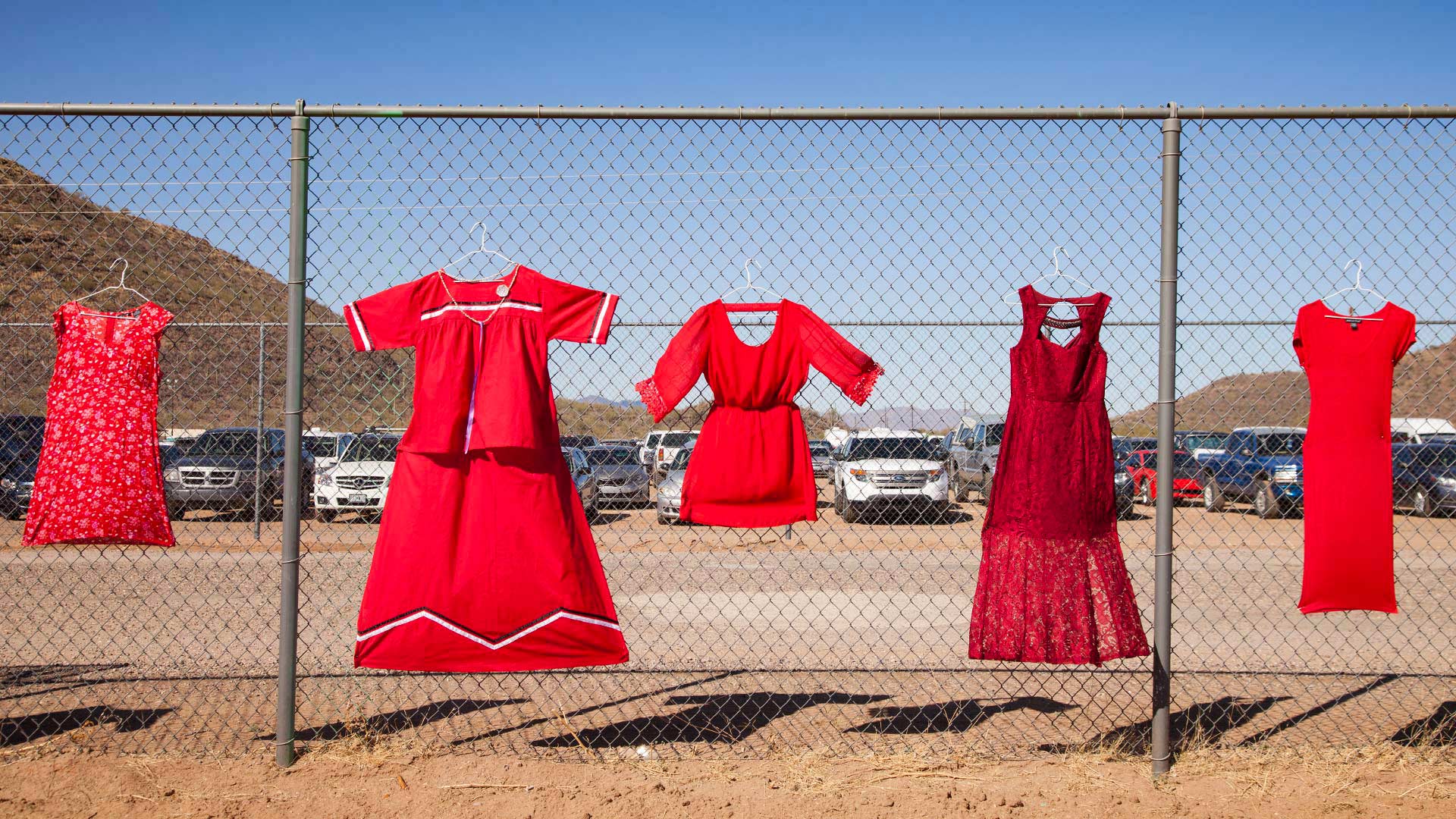 Red dresses representing missing and murdered Indigenous women, displayed at the Verna N. Enos Toka Field on the Tohono O'odham Nation, 2018.
Red dresses representing missing and murdered Indigenous women, displayed at the Verna N. Enos Toka Field on the Tohono O'odham Nation, 2018.
United States Attorney Gary Restaino, in Tucson, says the District of Arizona is hiring a regional coordinator to aid in the prevention and response to missing or murdered Indigenous people, as part of a Justice Department program.
“Their role is going to be to engage with our tribal partners to see what types of training is needed, to see what we can do to get more, in a word, alacrity to move faster and quicker on these types of investigations. So we don't know how it's going to develop. We're just excited at the additional resources. And we're excited that Arizona will be front and center in those efforts.”
Arizona is the recipient of numerous federal grants to assist in this effort, including $92 million from the Bureau of Justice Programs to Arizona, tribal entities and some non-governmental organizations.
Restaino says prosecutors need to rethink how they share information with next of kin in these cases in order to promote better outcomes, support greater sensitivity to Tribal customs and culture, and instill greater confidence in the results of investigations.

By submitting your comments, you hereby give AZPM the right to post your comments and potentially use them in any other form of media operated by this institution.